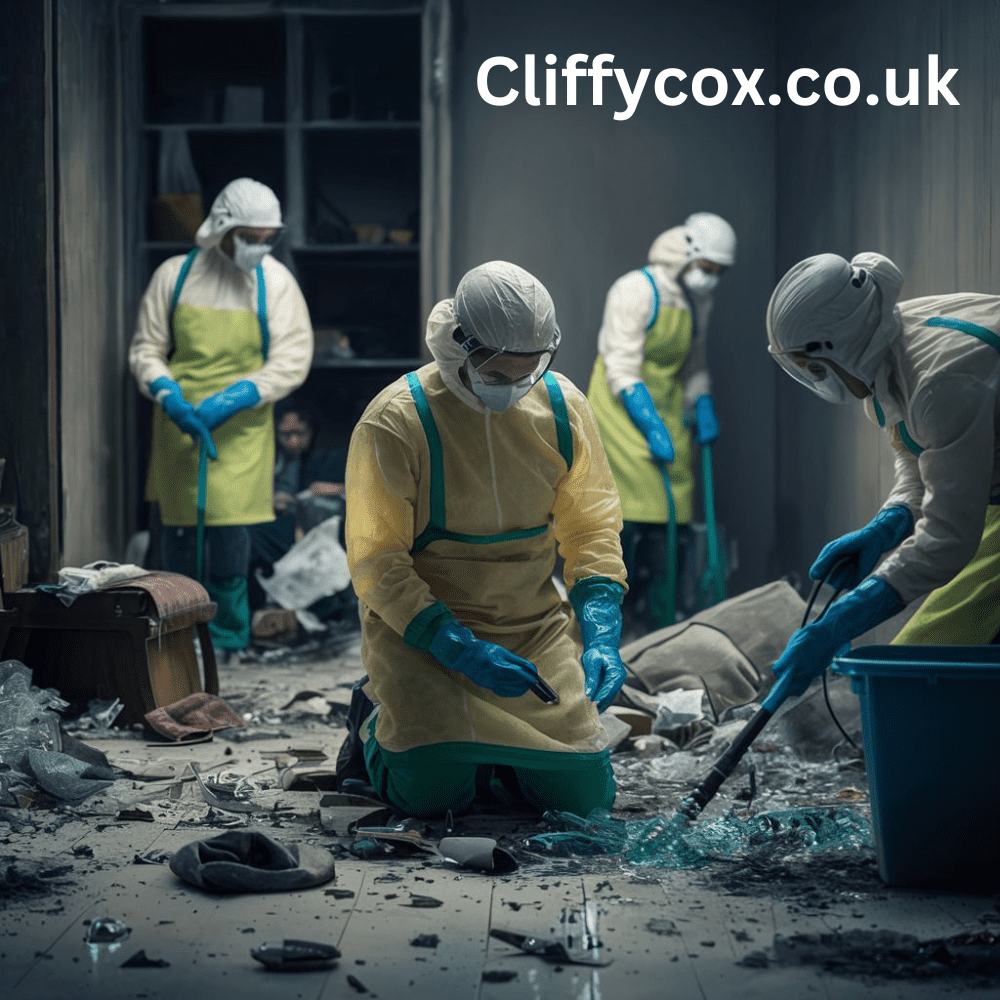
Introduction to Specialized Crime Scene Clean-up Services
Crime scenes, by their very nature, can pose significant health and safety risks due to the presence of biohazardous materials and potentially dangerous substances. Specialized crime scene clean-up services play a crucial role in ensuring that these environments are thoroughly decontaminated and restored to a safe condition. This article explores the various techniques and methods employed by professionals in the crime scene clean-up industry to effectively manage and clean these challenging environments. From understanding the importance of proper cleaning to examining the equipment and safety protocols involved, we delve into the intricacies of this specialized field to highlight the essential role it plays in maintaining public health and safety.
1. Introduction to Specialized Crime Scene Clean-up Services
Overview of Crime Scene Clean-up Industry
When the unexpected happens, specialized crime scene clean-up services step in to restore order and ensure spaces are safe and sanitary once again. These professionals specialize in handling the aftermath of traumatic incidents, providing a crucial service in restoring peace of mind to those affected.
Importance of Properly Cleaning Crime Scenes
Properly cleaning crime scenes is not just about restoring the physical space; it’s also about safeguarding the health and well-being of those who inhabit or visit these areas. Thorough clean-up is essential to prevent the spread of pathogens, protect against biohazards, and ensure the safety of all individuals involved.
2. Understanding the Importance of Proper Crime Scene Cleaning
Risks of Improper Crime Scene Clean-up
The risks of improper crime scene clean-up extend far beyond aesthetics. Failing to adequately clean and disinfect a crime scene can lead to the spread of infectious diseases, pose a threat to public health, and perpetuate emotional distress for those impacted by the event.
Impact on Public Health and Safety
Proper crime scene cleaning is not just a matter of appearance; it directly impacts public health and safety. By ensuring thorough decontamination of crime scenes, specialized clean-up services play a crucial role in preventing the spread of diseases and maintaining the well-being of communities.
3. Techniques and Equipment Utilized in Crime Scene Clean-up
Bloodborne Pathogen Cleaning Methods
Specialized crime scene clean-up services employ advanced techniques for safely handling and disposing of biohazardous materials, including bloodborne pathogens. These methods adhere to strict industry standards and regulations to mitigate risks and ensure effective decontamination.
Advanced Cleaning Technologies and Tools
From specialized cleaning agents to advanced equipment like ozone generators and foggers, crime scene clean-up professionals leverage cutting-edge technologies to achieve thorough decontamination. These tools help in efficiently removing contaminants and restoring affected spaces to a safe and habitable condition.
4. Safety Protocols and Regulations in Specialized Cleaning Services
OSHA Guidelines for Crime Scene Clean-up
Adherence to Occupational Safety and Health Administration (OSHA) guidelines is paramount in the crime scene clean-up industry. These regulations ensure the safety of workers and the public by establishing standards for handling hazardous materials, using protective equipment, and maintaining a clean work environment.
Proper Personal Protective Equipment (PPE) Usage
Effective crime scene clean-up requires the use of proper personal protective equipment (PPE) to safeguard against exposure to biohazards and contaminants. From gloves and masks to full-body suits, PPE plays a critical role in ensuring the safety of clean-up crews and preventing the spread of infectious materials.
5. Decontamination Processes for Hazardous Materials
Chemical Decontamination Procedures
When it comes to tackling hazardous materials at crime scenes, specialized clean-up services employ a range of chemical decontamination procedures. These may involve using specific cleaning agents and techniques to effectively neutralize and remove hazardous substances, ensuring the area is safe for habitation.
Biohazard Waste Management
Proper disposal of biohazard waste is a crucial aspect of crime scene clean-up. This includes safely packaging and removing blood, bodily fluids, and other potentially infectious materials. Clean-up crews follow strict protocols to prevent the spread of pathogens and comply with regulations for hazardous waste disposal.
6. Psychological Considerations in Crime Scene Clean-up
Impact of Traumatic Events on Clean-up Crews
Engaging in crime scene clean-up can have a profound psychological impact on the individuals involved. Exposure to traumatic events, graphic scenes, and high-stress environments can take a toll on the mental well-being of clean-up crews. It’s important to recognize and address these challenges to support the mental health of workers.
Coping Mechanisms and Support for Workers
To assist clean-up crews in coping with the emotional toll of their work, specialized services provide access to mental health resources, counseling, and debriefing sessions. Creating a supportive work environment and fostering open communication can help workers process their experiences and build resilience in the face of challenging situations.
7. Case Studies Highlighting Effective Clean-up Techniques
Successful Crime Scene Clean-up Scenarios
Examining successful crime scene clean-up scenarios can offer valuable insights into effective techniques and best practices. By analyzing case studies where clean-up crews efficiently and thoroughly restored the scene, professionals can learn from real-world examples and enhance their own clean-up processes.
Challenges Faced and Overcome in Specific Cases
In some instances, crime scene clean-up presents unique challenges that require innovative solutions. By highlighting cases where clean-up crews faced obstacles such as severe contamination or structural damage, professionals can gain a deeper understanding of the complexities involved in the field and strategies to overcome adversity.
8. Training and Certification Requirements for Crime Scene Clean-up Professionals
Educational Programs and Training Courses
Becoming a certified crime scene clean-up specialist entails undergoing specific educational programs and training courses. These programs cover essential topics such as biohazard handling, safety procedures, and decontamination techniques to equip professionals with the necessary skills to perform their duties effectively.
Certifications Needed for Crime Scene Clean-up Specialists
Obtaining certifications in crime scene clean-up demonstrates proficiency and compliance with industry standards. Certifying bodies provide accreditation for professionals who have completed training and met competency requirements, ensuring that clean-up specialists possess the knowledge and qualifications to deliver reliable and safe services.In conclusion, specialized crime scene clean-up services are vital for addressing the aftermath of tragic events and ensuring the safety of individuals and communities. By employing advanced techniques, adhering to strict safety protocols, and providing support for workers, these professionals play a critical role in restoring order and peace of mind in the wake of crime scenes. Through continuous training, dedication to excellence, and a commitment to public health, crime scene clean-up specialists make invaluable contributions to society by effectively managing and cleaning these challenging environments.
Frequently Asked Questions
What makes crime scene clean-up services different from regular cleaning services?
Crime scene clean-up services specialize in handling biohazardous materials, bloodborne pathogens, and potentially dangerous substances that are typically not encountered in regular cleaning services. These professionals are trained to adhere to strict safety protocols and regulations to ensure thorough decontamination of crime scenes.
Is crime scene clean-up a regulated industry?
Yes, crime scene clean-up is a regulated industry, with guidelines and regulations set by organizations such as OSHA (Occupational Safety and Health Administration) and other regulatory bodies. These regulations are in place to ensure the safety of both the clean-up crew and the public, and compliance is essential for all professionals in this field.
What qualifications are required to become a crime scene clean-up specialist?
To become a crime scene clean-up specialist, individuals typically need to complete specialized training programs that cover biohazard cleaning techniques, safety protocols, and decontamination processes. Certification in bloodborne pathogens and hazardous waste management may also be required, depending on the jurisdiction. Additionally, a strong emphasis is placed on psychological preparedness to handle the emotional challenges associated with this line of work.
Looking for best and professional company and crime scene clean-up specialist then you must try Cliffycox.co.uk
































